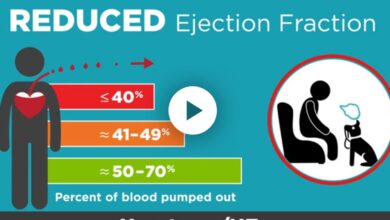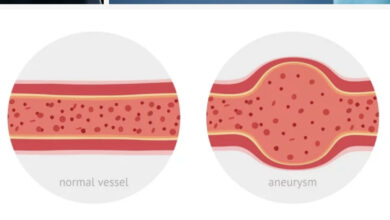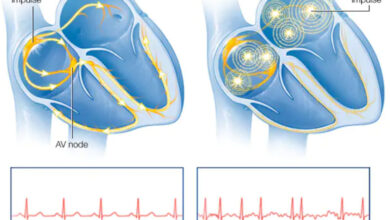SUDDEN DEATH: A Very Disturbing Event

Sudden death is always a tragic and terribly disturbing event. When someone who “appears to be the picture of health” suddenly “drops dead” for no obvious reason, it always makes us wonder. “Did he have any health problems?” “ Was she having any symptoms?” “Did he ignore any warning signs?” “How did this happen and why?” Well, the answers to those questions are known only by the deceased, and he or she can’t tell us. “If we had only known such-and-so we might have been able to save him.”
I remember in the 1970’s, a prominent 34-year old man, who was an avid tennis player, died suddenly in Market Square Arena while watching a tennis match. It was such a “public” death and the man was so well known that it caught the attention of the local media and the Indianapolis populace. Everyone was shocked and saddened that this young man’s life had tragically ended so early. Speculation was rampant as to the cause, but no one had an answer. I don’t know if he had an autopsy, but if he didn’t he should have. It’s the only means to discover the cause, but occasionally even an autopsy fails to identify a clear diagnosis.
Early on in my practice, a 40-year old male patient of mine, died suddenly and unexpectedly of unknown cause. He was the first patient I had with sudden death, and I was really upset about it for months. In fact, I could say I still am upset about it forty-plus years later. Over the years, there were three other patients who were “well” one day and dead the next. It’s hard to understand and accept, especially by a grieving family dependent upon the deceased as their breadwinner.
It’s always assumed that someone who dies suddenly has had a heart attack. Well, when 50% of the time the first symptom of heart disease is sudden death, you’re probably right. That statistic is startling to me—in heart disease patients, half the time the first indication one has is sudden death! That means a lot of people are walking around unaware they could drop dead at any minute. One bright spot, however, is that since statin drugs have been in common use, sudden cardiac deaths are far less frequent.
So, what are the causes of sudden death? Physicians who study these things describe three classifications of sudden death. They are:
1. Instantaneous sudden death
2. Unexpected death
3. Autopsy-negative death
Each of these classifications will be discussed later.
In a study of 1492 deceased patients ages 15-49, seventy-seven (77) were classed as sudden deaths. There were sixty-four (64) males, thirteen (13) females. Autopsy findings revealed the following results:
Coronary artery disease (CAD) was found in 49.3% of patients
Subarachnoid hemorrhage (brain bleed) in 10.4%
Alcoholism in 5.2%
Infection in 3.9%
Other causes—cancer, diabetes, epilepsy, sepsis, bowel obstruction
Coronary disease was found in nearly half the patients!!
In younger adults, Coronary Artery Disease is the major cause of sudden death.
Heart disease is clearly the leading cause of sudden death in older adults, also. Heart disease includes any dysfunction of the myocardium (heart muscle), coronary arteries, and great blood vessels (the aorta, pulmonary arteries and veins, and the vena cavae).
Abnormalities in these structures bring about a fatal arrhythmia, Ventricular Fibrillation (VF). VF is a true killer. It’s extremely rare to survive this arrhythmia if it is undetected and not treated immediately. It’s the reason thousands of fortunate individuals have defibrillators implanted in their chests. And it’s the reason churches, theaters, arenas, hotels, any place where large groups of people gather, have installed AED’s (Automated External Defibrillators) in their facilities. They save lives. Remember, fifty percent of patients with heart disease present (have their first symptoms) as sudden death.
Cardiomyopathy is an abnormality, in some form, of the heart muscle (the myocardium). It can be an inflammation of the muscle, Myocarditis, a thickening of the muscle, Hypertrophic Cardiomyopathy, enlargement of the muscle, Dilated Cardiomyopathy, or stiffening of the muscle, Restrictive Cardiomyopathy. In young athletes, cardiac arrest is the leading cause of death and is most often the result of undetected Hypertrophic Cardiomyopathy. Thickening of the heart muscle disrupts the heart’s electrical conduction system causing VF and death.
Coronary Artery Disease is also a major player in sudden death. A blockage of one or more of the main coronary arteries (the arteries that supply blood to the heart muscle) leads to a Myocardial Infarction (heart attack) and our old nemesis, Ventricular Fibrillation. Heart attacks are, then, added to the broad category of heart disease-related causes of sudden death.
Other factors which have a negative effect on the heart and thus contribute to cardiac-related sudden death are high blood pressure, diabetes, smoking, Illicit drug use, inherited heart defects, caffeine, alcohol, dehydration, sleep apnea, and abnormalities of potassium, calcium, and magnesium. These are not directly involved in causing sudden death, but they are direct stressors of the heart and contribute to it. Inherited abnormalities of the heart’s electrical conduction network are additional causes of sudden death. Long QT and short QT intervals can trigger VF.
Stroke is the next major cause of sudden death, but patients who have acute strokes usually don’t just drop dead. Strokes can be occlusive (the brain artery becomes blocked) or hemorrhagic (the artery bursts and bleeds into the brain). When these events occur, the patient becomes suddenly comatose, but may actually live for hours or days. Severe strokes are always troubling for families who have to decide to use life supportive measures or not.
Pulmonary Embolism and Pulmonary Infarction are the next disastrous disorders leading to sudden death. I often hear ads on TV for drugs to treat “PE blood clots.” Patients who are able to take those drugs are the lucky ones; the one’s whose pulmonary embolus was small and affected only a small part of the lung. They are the survivors. But when the clot is large and occludes both pulmonary arteries, pulmonary infarction (lung destruction from lack of circulation) and sudden death are a certainty. Hospitalized patients, especially those who have had major surgery, are at greatest risk of PE. Blood clots in the lower extremities develop early during a hospitalization and worsen as long as the patient is immobilized. Unfortunately, fragments of the clots break loose and travel to the lungs with disastrous consequences. Doctors and hospitals have developed preventive protocols to reduce the incidence of such deaths with good success.
Aortic Rupture, or a tear in the wall of the aorta (the main blood vessel exiting the heart), is another of the causes of sudden death. A rent (or tear) in the wall allows a massive volume of blood to leak into the area around the artery. This event demands emergency surgical intervention, and the outcome is often unfavorable.
Fat Embolism is similar to Pulmonary Embolism, but instead of originating in the veins of the legs, fat emboli develop from the traumatic fracture of a major bone such as the femur (thigh bone). Major bone fractures damage subcutaneous fat and release fat particles from the bone marrow exposed at the ends of the fracture. These fat globules are absorbed by large veins and travel to the lungs causing similar problems there as occur with blood clots. Sudden death, though not as certain or frequent, does occur.
What follows next is a summarization of causes of sudden death by organ system. This was obtained from an article on MEDSCAPE about causes of sudden death found at autopsy.
Causes of instantaneous or sudden death:
Ventricular Fibrillation may occur in the following and cause sudden death:
Coronary artery-occlusion, rupture, structural abnormality
Hypertensive heart disease
Cardiomyopathies-hypertrophic, dilated, restrictive
Inflammatory-myocarditis, pericarditis (inflammation of the sac around the heart)
Heart valve-rheumatic heart disease, inherited valve abnormalities
Functional abnormalities-long QT, short QT, Brugada Syndrome
Acute myocardial infarction (heart attack)
Aorta and other great blood vessels:
Ruptured aortic aneurysm (a bulge in the artery wall)
Aortic dissection (a tear in the wall of the aorta)
Mesenteric artery thrombosis (the main artery supplying blood to the intestines)-the bowel
Infarcts (dies) and sepsis (blood infection) ensues
Ruptured tubal pregnancy-massive blood loss into abdomen
Pulmonary (lung) conditions that can result in sudden death:
Asphyxia-aspiration of stomach contents, laryngeal edema (swelling), sleep apnea
Pneumothorax-collapsed lung
Bronchial asthma
Pulmonary embolism-from pelvic of leg veins, fat/bone marrow and air emboli
Acute hemorrhage-Cancer, lung abscess
Central nervous system (brain and spinal cord) causes of sudden death:
Acute hemorrhage-ruptured brain aneurysm, ruptured AV malformation
Infection-meningitis, abscess, encephalitis
Cerebral (brain) edema (swelling)
Gastrointestinal disorders that can cause sudden death:
Massive GI hemorrhage-esophageal varices (varicose veins in esophagus), bleeding ulcer
Acute hemorrhagic pancreatitis
Esophageal polyps
Causes of unexpected death: the article lists thirty-six disorders that fall into this category, but for purposes of our discussion, I have limited my list to only those conditions associated with sudden, catastrophic death.
Autopsy-negative causes of death: Death from the following conditions may cause negative autopsies.
Endocrinopathies-diabetic ketoacidosis (very high blood sugar), hypoglycemia, thyroid storm
and thyrotoxicosis (severely overactive thyroid), adrenal gland failure
Electrolyte abnormalities-dehydration, diarrhea, vomiting, uremia (kidney failure), low
potassium, water intoxication
Cardiac arrhythmia-electrolyte imbalance, drug-induced rhythm problems
Other-epileptic seizure, anaphylaxis (shock from allergic reaction)
Dr G’s Opinion: When some one dies suddenly and unexpectedly, like I’ve discussed, it sets in motion all kinds of thoughts, suspicions, worries, and questions that can only be answered by an autopsy or by a thorough knowledge of the deceased’s medical history. Without one or both of these major pieces of information you’re guessing as to the cause. But as they always said in medical school on rounds, “ When you hear hoofbeats, think horses not zebras!” Go with the percentages, the common problems, and consider obscure, infrequent diagnoses only if there is something to point you in that direction.
References:
emedicine.medscape.com/article/1680282
cprcertified.com/blog/sudden-death
mayoclinic.org/diseases-conditions/sudden-cardiac-arrest/sudden-death
“Sudden Death in Children and Adolescents,” Wren, C, HEART 2002;88:426-431.
ncbi.nlm.nih.gov/pubmed/6724459




